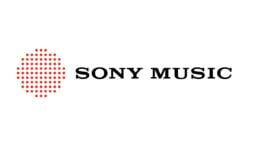Relations between the music and fitness sectors have never been cosier — but trouble is brewing between one of the major music companies and one of world’s the fastest-rising fitness brands.
Sony Music Entertainment (SME) has filed a copyright infringement lawsuit against UK-born fitness apparel brand Gymshark.
The fitness firm, founded by Ben Francis in 2012, was valued at approximately $1.3bn in August last year after selling a 21% stake to US-based General Atlantic. Gymshark is currently expanding into the US.
In a legal document filed in California on Thursday (July 15), Sony Music claims that Gymshark “has achieved its success by infringing sound recordings and musical compositions belonging to a number of different content owners”, including SME’s, “on a massive scale”.
According to the filing, Gymshark has “largely eschewed traditional advertising” and has instead promoted its products in videos posted to the likes of Instagram, TikTok, and Facebook.
These videos, claims the lawsuit, “feature popular sound recordings as an integral part of the presentation”.
Sony Music states that while these videos on Instagram, TikTok etc. “have been instrumental to Gymshark’s success”, the company “has not paid for the privilege to use the sound recordings that are featured in them”.
The lawsuit claims further that Gymshark has “misappropriated hundreds of the most popular and valuable sound recordings in the market”.
Some of the artists whose tracks have allegedly been used without permission in Gymshark’s videos include Beyoncé, Britney Spears, The Chainsmokers, Justin Timberlake, A$AP Rocky, Travis Scott, Harry Styles, Usher, Noah Cyrus, and Calvin Harris.
“Gymshark has misappropriated hundreds of the most popular and valuable sound recordings in the market”.
Sony Music Entertainment
The lawsuit explains that many of the videos in question were created by Gymshark itself, while others were created by so-called “influencers” that the company partnered with.
These individuals, the filing continues, post their videos on their own pages, “while at the same time providing them to Gymshark to repost on Gymshark’s social media pages”.
“On information and belief”, adds Sony Music’s filing, “Gymshark compensates these influencers with free product and/or a monetary payment, sometimes tied to Gymshark’s sales of the product(s) featured in the influencer’s videos”.
On page 13, of the 21-page filing, Sony Music reiterates that “Gymshark’s investment in social media, and in the Gymshark Videos in particular, has been critical to Gymshark’s success”.
Sony also notes that in 2018, Gymshark’s Chief Brand Officer Noel Mack explained during an interview that “Instagram is a huge part of our story because of the communities we create, but the challenge is always how to stand out among so many online businesses vying for consumers’ attention”.
The filing, which you can read in full here, provides examples of where songs are integrated into the fitness brand’s promotional videos and where elements such as lip-syncing and choreographed movement are used.
The filing explains: “Recognizing the importance of the music to the social media posts, the Gymshark Videos often specifically identify the featured sound recording, as shown in Figure 1 above and in the example shown in Figure 2 below, identifying Sony Music sound recording July performed by Noah Cyrus; that video also specifically calls out the Gymshark-branded products depicted in the video, with arrows pointing to the hat and shirt bearing the Gymshark name and stating ‘Look at the hat’ and ‘Look at the top’.
“Other Gymshark Videos bear striking similarities to traditional television advertisements. These videos, which on information and belief were created by Gymshark with professional grade technologies, feature shots of models wearing Gymshark products, similar to a traditional television commercial for athleticwear, set to Plaintiffs’ sound recordings.”
While all three major labels have licensed Facebook-owned Instagram to allow users to use music in their videos for personal use, the lawsuit points out that Instagram’s Terms of Use include Music Guidelines, which state: “Use of music for commercial or nonpersonal purposes in particular is prohibited unless you have obtained appropriate licenses”.
TikTok, which also has deals in place with all three major music companies, clarifies in in its own Terms of Service that “No rights are licensed with respect to sound recordings”.
Sony Music claims that late last year, Gymshark’s Head of PR & Brand Partnerships Steph O’Neill approached the major music company to try and obtain a license to use a snippet of The Flute Song (by an artist called Russ) in a video featuring Gymshark athlete Ryan Garcia.
No license was obtained, but the track was still used, the lawsuit claims.
“Gymshark’s infringement was clearly willful. Among other things, the social media platforms on which Gymshark posted the infringing Gymshark Videos expressly state that users have no right to infringe music, particularly in connection with commercial activities.”
Sony Music Entertainment
Adds Sony Music: “Although this request reflected Gymshark’s awareness that a license was required for use of Sony Music’s sound recordings, and although Sony Music advised Gymshark that it would be willing to grant the license in exchange for compensation, Gymshark never signed a license agreement or paid a license fee to Sony Music, and instead used the sound recording without authorization and without compensating Sony Music.
“Gymshark’s infringement was clearly willful. Among other things, the social media platforms on which Gymshark posted the infringing Gymshark Videos expressly state that users have no right to infringe music, particularly in connection with commercial activities.”
Sony Music is demanding a trial by jury and seeks statutory damages of up to the maximum amount of $150,000 per infringed recording.
Attached to the lawsuit is Exhibit A, a document that details what Sony Music calls an “initial list of sound recordings” for which it alleges the “rights have been infringed by Gymshark through the inclusion of such sound recordings in Gymshark Videos”.
There are 297 recordings on the list, which means that, at $150,000 each, maximum total damages sought could exceed $44m.Music Business Worldwide





